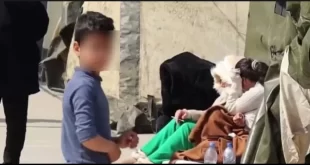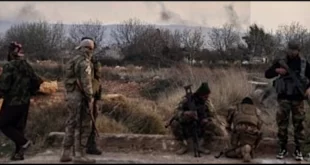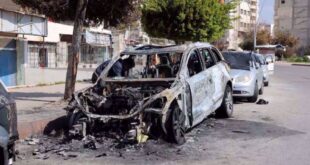May 28, 2014, NSNBC
Figures from Turkey’s Statistical Institute (TÜIK), reveal that Turkey sold 16.026 tons of isopropyl alcohol, the main ingredient for the manufacturing of Sarin gas to Syria in 2013, reports Masum Gök in Turkey’s Aydinlik Daily.
The figures suggest that the timing of most of the sales coincide with the chemical weapons attack in Eastern Ghouta, which according to a detailed report was carried out by Liwa-al-Islam, on order of Saudi intelligence agent and Liwa-al-Islam supreme commander Zahran Alloush.
Masum Gök adds, that TÜIK’s statistics also reveal that shipments of sodium sulphide, worth 688.509 US dollars, were exported from Turkey to Syria in 2013.
Sodium sulphide is a key ingredient for the production of mustard gas which kills by causing severe topical and internal burns and blisters as well as other mechanisms and pathways. Gök quotes a Turkish professor in chemistry known to him, whose name is protected, as saying:
“One cannot produce sarin gas without isopropyl alcohol. It is the main ingredient of sarin”.
The chemistry professor added that the amount of isopropyl cited in TÜIK’s statistics is enough for the production of sarin, sufficient to kill the entire population of Syria.
Masum Gök points out the peculiar fact that the UN, after long-drawn investigations, failed to deliver a conclusive report about the attack in Eastern Ghouta, and that most of the export of these chemicals to Syria coincided with the chemical weapons attack on August 21.

The above mentioned nsnbc report however, explains why the UN failed to produce a conclusive report about the use of Sarin gas in Eastern Ghouta. The UN experts who investigated the evidence in Eastern Ghouta were only granted access to the area after they agreed to work under the “protection” of guards, which had been chosen by Liwa-al-Islam commander and Saudi intelligence agent Zahran Alloush.
The nsnbc report also uncovers a number of other inconsistencies suggesting UN involvement in “scapegoating” the Syrian government and armed forces, while it was evident from the start that the attack was launched by “rebels”. The report places direct command and political responsibility with top US and Saudi officials and names those involved in carrying out the attack by name.
Aydinlik Daily’s Masum Gök adds that TÜIK’s statistics show that most of the exports of sodium sulphide began in November 2013. This fact suggests that mustard gas may have played a role in chemical weapons use in Syria since November, and that it is highly probable that some of the foreign-backed mercenary brigades in Syria could have the capability to launch deadly mustard gas attacks.
Masum Gök stressed the fact that all official commercial relations between Turkey and Syria had been halted. This means, that the sales of these materials must have been completely “off the books”, as some Syrian authorities have claimed.
Gök stressed that a senior official in Turkey’s Ministry of Economy stated that the trade with the substances reported in TÜIK’s statistics must have been conducted within buffer zones with deliveries directly to the Islamic State of Iraq and Levant, Al-Nusrah and the Free Syrian Army. It is worth noting that Jabhat al-Nusrah and Liwa-al-Islam have a well-organized joint command structure, as the above mentioned nsnbc report also documented.
Masum Gök, for his part, also stressed that suspects in Turkey´s sarin gas trial in Adana Province were recorded during a phone conversation, in which they discussed the delivery of resorcinol and isopropyl within the context of a “last solution”.

Two other facts are noteworthy within the context of the Turkish exports of key chemical weapons ingredients to the mercenary brigades in Syria. One is that analyst and nsnbc editor Christof Lehmann warned in several articles, published since the end of June 2013, that US and other intelligence services and al-Qaeda-linked brigades in Syria were planning a large-scale chemical weapons attack to justify a military campaign against Syria.
The other is, that the Syrian armed forces, in early July 2013, seized 281 barrels of chemicals in Banias. The Syrian UN Ambassador Bashar al-Jaafari reported after the seizure of the stockpile, that the chemicals were sufficient to kill the entire Syrian population.
 Syria Support Movement solidarity with the Syrian people
Syria Support Movement solidarity with the Syrian people





